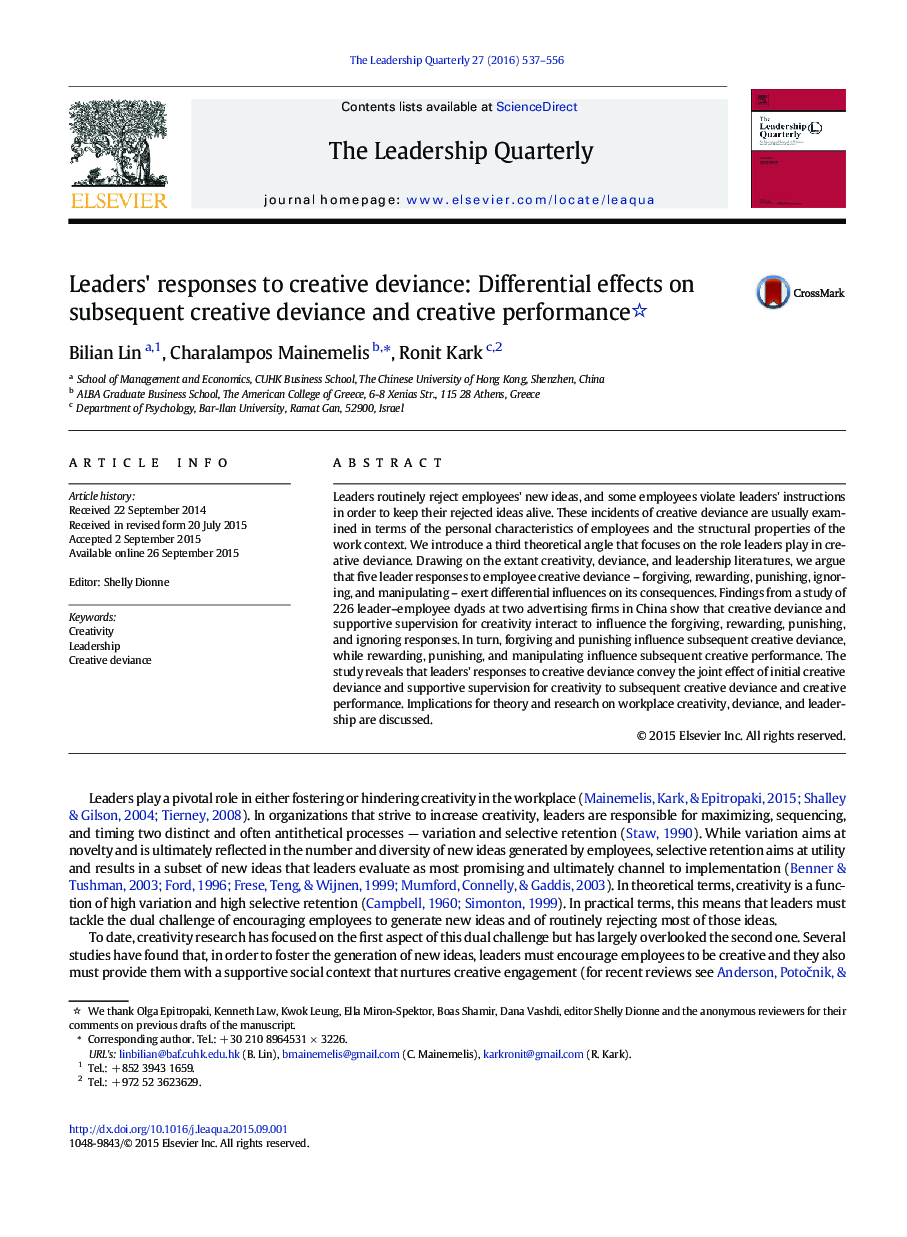| Article ID | Journal | Published Year | Pages | File Type |
|---|---|---|---|---|
| 887663 | The Leadership Quarterly | 2016 | 20 Pages |
Leaders routinely reject employees' new ideas, and some employees violate leaders' instructions in order to keep their rejected ideas alive. These incidents of creative deviance are usually examined in terms of the personal characteristics of employees and the structural properties of the work context. We introduce a third theoretical angle that focuses on the role leaders play in creative deviance. Drawing on the extant creativity, deviance, and leadership literatures, we argue that five leader responses to employee creative deviance – forgiving, rewarding, punishing, ignoring, and manipulating – exert differential influences on its consequences. Findings from a study of 226 leader–employee dyads at two advertising firms in China show that creative deviance and supportive supervision for creativity interact to influence the forgiving, rewarding, punishing, and ignoring responses. In turn, forgiving and punishing influence subsequent creative deviance, while rewarding, punishing, and manipulating influence subsequent creative performance. The study reveals that leaders' responses to creative deviance convey the joint effect of initial creative deviance and supportive supervision for creativity to subsequent creative deviance and creative performance. Implications for theory and research on workplace creativity, deviance, and leadership are discussed.
